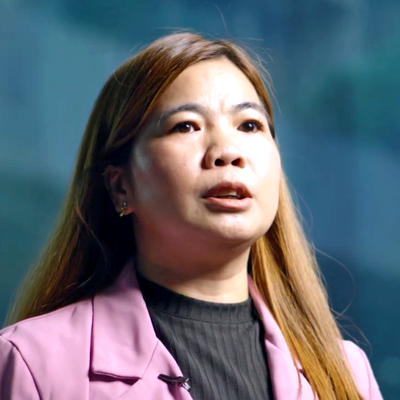
OVERVIEW
About This Programme
The Advanced Diploma in Accounting and Finance has been developed by London School of Business and Finance (LSBF) for students aiming for a Higher Education qualification in the subject area, and/or for students aiming for a career in business and management. One important feature of this programme is that it has been designed for students whose first language is Chinese (Mandarin), or who have proof of proficiency in the language.
Throughout the programme, students are fully supported and their development is checked frequently by progress assessments. Student performance and satisfaction is monitored to ensure that the programme meets students’ academic and personal development needs; and industry contacts ensure that the programme is relevant and suitable for the demands of a career in business and management.
Graduates of the Advanced Diploma in Accounting and Finance may wish to progress further in their studies and will be equipped to join a level six (Honours degree) qualification in Business Studies or Management. Graduates wishing instead to enter employment at this stage will be suited to roles that require effective, autonomous action and the exercise of personal responsibility and decision-making skills.
Bilingual programme
8 month | fulltime
fast track degree
Practical and theoretic modules
Guided career sessions
MODULES
Designed to explore beyond subject knowledge
By the end of the programme, graduates will be able to demonstrate the accounting and finance related knowledge, which will be further developed and integrated into broader business knowledge, skills and professional values and ethics.
Strategic Management
On successful completion of the module, students will be able to:
- Critically analyse the accounting concepts and practises used in preparing financial statements
- Use of accounting information to assist in the management decision making process
- Further develop their understanding of concepts relating to accounting theory
- Develop an awareness of the requirements of Company Law and International Accounting Standards concerning the format and content of company financial statements
- Develop an understanding of the accounting regulatory frameworks and Corporate Governance
- Appraise the effects of accounting policy choices on reported income, net assets and capital
Professional Practice
At the end of this Module, students will be able to:
- Demonstrate understanding of the nature of professional ethics and its significance in the business environment
- Explain and discuss ethical reasoning and related professional standards as applied to issues in accounting practice
- Analyse potential ethical dilemmas in practical settings
- Critically discuss the development of the accounting profession
- Describe and reflect upon the role that governance plays in the management of a business and the evolution of good governance practice
Management Accounting
On successful completion of the module, students will be able to:
At the end of this Module, students will be able to
- Demonstrate a knowledge and understanding of alternative concepts, tools, practices, roles and terminologies of cost and management accounting
- Skilfully apply a number of calculative cost and management accounting techniques
- Interpret, and critically appraise, the use of cost and management accounting techniques within their broader (organisational, environmental and managerial) contexts
- Appreciate the numerous behavioural, organisational, political and social dimensions of cost and management accounting practice
Financial Accounting
On successful completion of the module, students will be able to:
- Critically analyse the accounting concepts and practises used in preparing financial statements
- Use of accounting information to assist in the management decision making process
- Further develop their understanding of concepts relating to accounting theory
- Develop an awareness of the requirements of Company Law and International Accounting Standards concerning the format and content of company financial statements
- Develop an understanding of the accounting regulatory frameworks and Corporate Governance
- Appraise the effects of accounting policy choices on reported income, net assets and capital
Business Law
On successful completion of this unit, students should be able to:
- Understand and appreciate the fundamentals of business law as applied in Singapore
- Know the context of Contract Law, Law of Sale of Goods, and Company Law relating to business organisation, and the Singapore Code of Corporate Governance.
- Know the context of the Employment Law, Law of Agency, and Intellectual Property law
- Critically analyse and evaluate simple legal arguments.
Corporate Finance
On successful completion of this unit, students should be able to:
- Explain and evaluate corporate finance concept and its relevance to a variety of corporate finance decisions such as capital budgeting, securities valuation, capital structure and dividend policy
- Apply basic corporate finance theories to a range of corporate finance issue commonly faced by companies
- Add value both to your own personal financing and investment decisions and professional corporate financial management decision
- Evaluate and appreciate newspaper articles on current corporate finance issues
Taxation
On successful completion of this unit, students should be able to:
Management Accounting
On successful completion of this unit, students should be able to:
- Calculate an individual’s income from employment
- Determine the income tax liability arising on individuals who are Singapore residents.
- Calculate income from savings and investments
- Discuss the operation of the Singapore tax system
- Calculate income from property (for individuals)
- Prepare adjusted profit/loss computations for trades and professions (sole-proprietorships and partnerships)
- Determine the income tax liability of sole proprietors
- Determine the income tax liability of partners
- Prepare capital allowances computations
Identify due dates of submission of returns and the payment of tax liabilities
Auditing
On successful completion of this unit, students should be able to:
- Explain and evaluate the core concepts, theories and techniques in the area of auditing.
- Explain what an external audit is and why external audits are necessary within a statutory and professional framework
- Appreciate the relevance of audit ethics, postulates and the role of the professional regulatory body
- Describe and critically assess the process of audit planning, particularly in the context of risk and materiality
- Describe compliance and substantive audit testing
- Evaluate the importance of internal controls and the main forms of audit evidence and documentation to support an audit opinion
- Explain the structure and meaning of the audit report and the nature of audit qualifications
- Appreciate a core body of knowledge in auditing for application in their future careers as professional accountants
Full programme structure & learning outcomes
Get details and learn about the advantages of learning with LSBF.
what to expect
Prepare for a Advanced Diploma in Accounting and Finance (Mandarin)
Programme Aims
The aim of the Advanced Diploma in Accounting and Finance is to provide students with the opportunity to further develop accounting and business studies knowledge based on practical skills gained through successful completion of the LSBF Diploma in Accounting and Finance. Holders of the Advanced Diploma will be able to demonstrate detailed knowledge and critical understanding of the major theories in business and management, and of the way in which those theories have developed.
The Advanced Diploma in Accounting and Finance aims to provide students:
- To develop students’ competence and practical skills in accounting and finance
- To lay the foundation for future pathway and continuing professional development.
- To provide students with the relevant knowledge and understanding of accounting and finance as it relates to the wider business context
- The knowledge and skills that will enable them to follow a career in all areas of accounting and a wide range of careers in business and finance.
Learning Outcomes
Graduates of the Advanced Diploma in Accounting and Finance should be able to evaluate and apply, within the context of the organisation, the standard theories and concepts from the following generic management areas:
- Finance and Management Accounting
- Human Resources
- Information Systems and Technology
- Operations Management
- Demonstrate relevant accounting and finance knowledge and understanding of organisations, the external environment in which they operate and how they are managed.
- Demonstrate proficiency in quantitative methods and computing techniques and know how to use these techniques and methods effectively across a range of problems.
- Interpret financial data and carry out statistical and financial analysis.
- Demonstrate understanding of ethical and regulatory requirements and issues.
- Effectively communicate information, arguments and analysis in a variety of forms to specialist and non-specialist audiences, including use of a range of media which are widely used in business such as the preparation and presentation of business reports.
- Demonstrate cognitive skills of critical thinking, analysis and synthesis.
- Demonstrate effective problem solving and decision making using appropriate quantitative and qualitative skills including identifying, formulating and solving business problems.
- Undertake further training, develop existing skills and acquire new competences that will enable them to assume significant responsibility within organisations.
Skills you will acquire

$92,000+
median Singapore salary for Accounting
483,000+
Singapore job openings in Accounting
75%
of graduates report positive career outcome
programme structure
Assessment method, graduation, and awards
A: Assessment Outline
Assignment/Class test 50%
Final Exam 50%
Total: 100%
B: Assessments Profile
i. Assignment/Class test: (50%)
The assessment may take the form of an in-class test, individual or group assignment.
Students to be communicated on assignment and assessment outlines/ parameters before programme and unit commencement.
Students are tasked to submit the assignment/ class test.
ii. Final Examination (50%) 3 hours
Students to be communicated on the final exam and assessment outlines/ parameters before programme and unit commencement.
Lecturer will go through with the students and highlight the importance of relevant topics during the final revision class.
Students are required to sit for the final exam.
Graduation and awards
Students must complete and pass all required modules in this programme to receive a Advanced Diploma in Accounting and Finance (Mandarin) certification.
Students who are for any reason unable to complete the Diploma and who have successfully passed a minimum of 4 modules are eligible for an Exit Award of a Diploma in Accounting and Finance (Mandarin).
Contact hours
| Mode | Lecture / Tutorial / Seminars / Workshops |
| Full-time and Part-time | 36 hours 30 hours Synchronous hours 06 hours Asynchronous hours |
Full-time students attend 3-hour lessons per day plus directed/independent study for a period of 8 months from Monday to Friday. Part-time students attend 3-hour lessons two nights a week and scheduled weekends for a period of 12 months.
Exemptions
- Students with non-standard entry requirements (e.g. other PEI qualification, lack of equivalent Year 12 in home country, LSBF Diploma in other discipline, etc.) will be assessed on a case by case basis subject to approval of the Academic Board.
Target audience
Working adults who would like to further expand their existing knowledge and skills in Accounting and Finance.The Advanced Diploma in Accounting and Finance can lead to a level six (Honours degree) qualification in Accounting & Finance or Business Management, or to employment in a role that require the exercise of personal responsibility and decision-making skills.
STUDENT SUPPORT SERVICES
Why choose LSBF for your education
Study Materials
Students will receive study materials after they have made full payment for their programme. Replacement of study materials is subject to additional charge.
Student Portal
Students have access to the Student Portal. It is a useful site where the programme information and learning materials are available for students’ easy reference.
Accessible Faculty
Students may contact their lecturers directly via email outside the lecture hours for any academic related queries.
Recorded Lectures
We will show compassion and care to all stakeholders as we believe the journey is as important as the outcome.
ELIGIBILITY
Who can apply
Minimum Language Entry Requirement:
Students must achieve a Pass in Mandarin Language in Year 11 Higher School qualification or equivalent.
Minimum age requirements
- Aged 19 years old and above
Local students shall possess one of the following
- LSBF Diploma in Accounting and Finance (Mandarin)
- Local Polytechnic Diploma in a relevant field
International students shall possess one of the following
- LSBF Diploma in Accounting and Finance (Mandarin)
- Equivalent Local Polytechnic Diploma in a relevant field in respective home countries
TUTION FEES
Consult student advisor today!




















